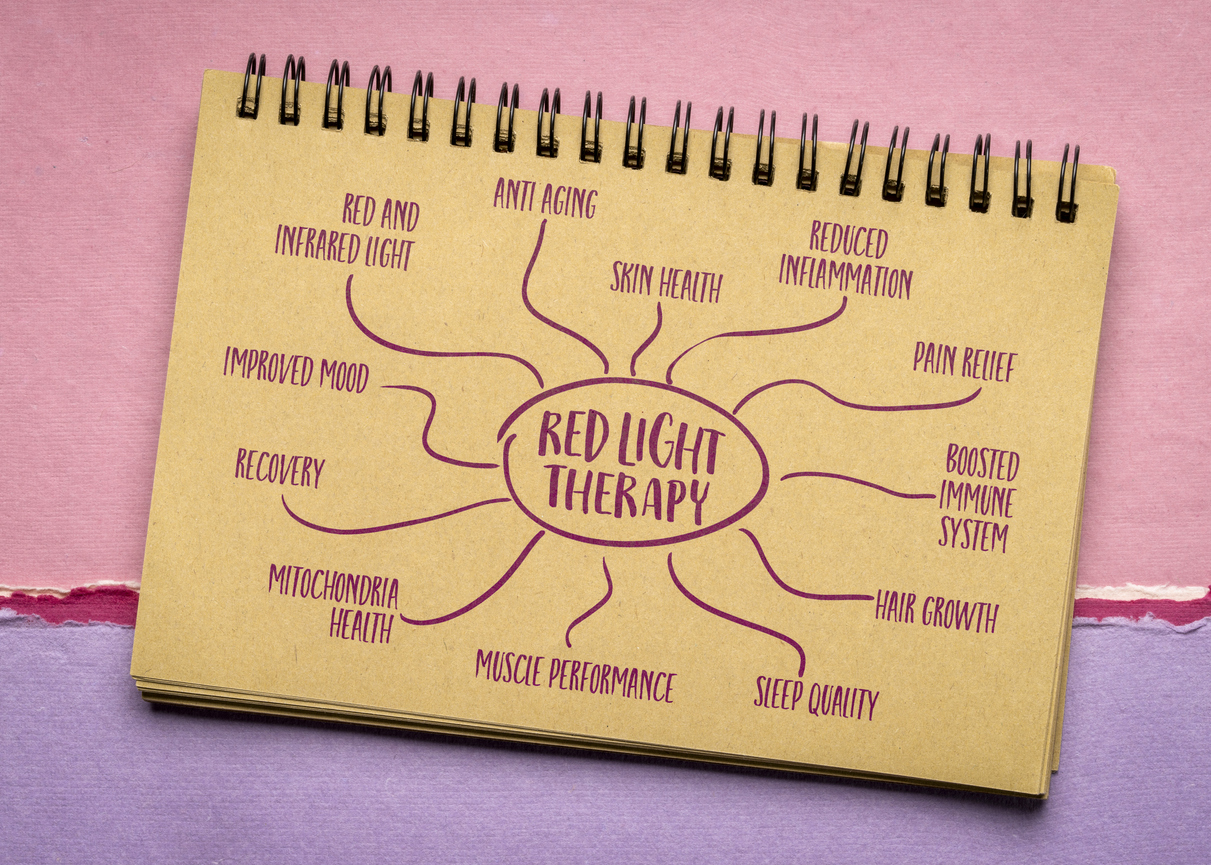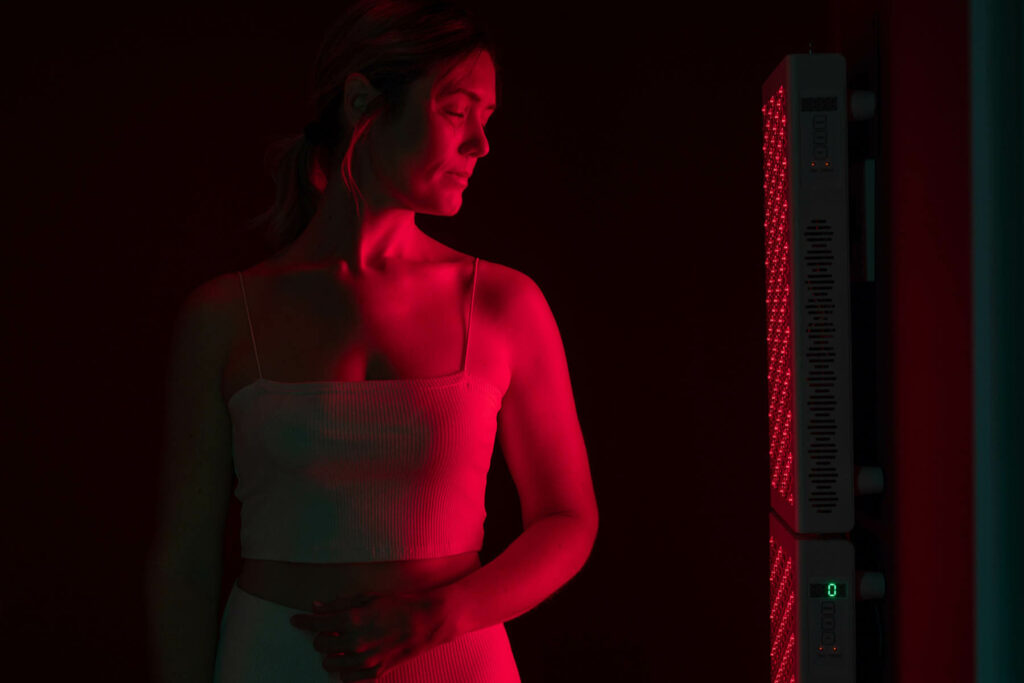The Benefits of Red Light Therapy

Red light therapy, also known as low-level laser therapy or photobiomodulation, is a non-invasive treatment that uses red and near-infrared light to stimulate healing and reduce inflammation in the body. This therapy has been gaining popularity in recent years due to its numerous health benefits. In this article, we will explore the benefits of red light therapy and provide scientific references to support these claims.
Red Light Therapy Can Reduce Pain and Inflammation
One of the most significant benefits of red light therapy is its ability to reduce pain and inflammation. Several studies have demonstrated the effectiveness of this therapy in treating conditions such as osteoarthritis, back pain, and fibromyalgia. A 2013 study published in the journal Lasers in Medical Science found that red light therapy significantly reduced pain and improved mobility in patients with knee osteoarthritis. Another study published in the Journal of Clinical and Aesthetic Dermatology in 2018 showed that red light therapy improved skin inflammation and reduced pain in patients with rosacea. The light energy penetrates deep into the tissue, stimulating cellular repair and reducing inflammation. This can be particularly beneficial for people with arthritis, joint pain, or muscle soreness.

Red Light Therapy Can Improve Skin Health
Red light therapy has been found to improve skin health and reduce signs of aging. A study published in the Journal of Cosmetic and Laser Therapy in 2014 found that red light therapy improved skin complexion, reduced the appearance of fine lines and wrinkles, and increased collagen production. Another study published in the same journal in 2017 showed that red light therapy improved the skin’s elasticity and reduced the appearance of sun damage. The red and near-infrared light stimulates the production of collagen, which is essential for skin elasticity and firmness. Studies have shown that red light therapy can also reduce inflammation and improve overall skin tone.
Red Light Therapy Can Enhance Athletic Performance
Red light therapy has been shown to improve athletic performance and reduce muscle soreness and fatigue. A study published in the Journal of Strength and Conditioning Research in 2018 found that red light therapy improved muscle strength and reduced muscle damage in athletes. Another study published in the Journal of Athletic Training in 2014 showed that red light therapy reduced muscle soreness and improved range of motion in athletes. Red light therapy can enhance athletic performance by increasing energy production within cells and improving muscle recovery time. Studies have shown that red light therapy can increase the production of ATP, which is the primary energy source for cells. This can lead to improved endurance and faster recovery time after workouts.
Red Light Therapy Can Improve Mood and Sleep Quality
Red light therapy has also been found to improve mood and sleep quality. A study published in the Journal of Affective Disorders in 2018 found that red light therapy improved mood and reduced symptoms of depression in patients with seasonal affective disorder. Another study published in the Journal of Sleep Research in 2012 showed that red light therapy improved sleep quality and duration in patients with insomnia. Red light therapy can improve sleep by regulating the body’s circadian rhythm. The red and near-infrared light helps to stimulate the production of melatonin, which is essential for sleep regulation. These factors can improve sleep quality and reduce the amount of time it takes to fall asleep.
Red Light Therapy Can Increase Hair Growth
Red light therapy can increase hair growth by stimulating the hair follicles. The light energy increases blood flow to the scalp, which can improve the health of the hair follicles and increase the production of new hair. Studies have shown that red light therapy can be an effective treatment for hair loss and can even help to reverse balding in some cases.
Red Light Therapy Can Boost Immune Function
Red light therapy can boost immune function by stimulating the production of white blood cells. The light energy can also reduce inflammation, which can help to improve immune function. This can be particularly beneficial for people with compromised immune systems.
Red Light Therapy Can Reduce Depression and Anxiety
Red light therapy can reduce depression and anxiety by stimulating the production of serotonin and dopamine. These neurotransmitters are essential for regulating mood and reducing feelings of anxiety and depression. Studies have shown that red light therapy can be an effective treatment for seasonal affective disorder (SAD) and other forms of depression.
Red Light Therapy Can Improve Cognitive Function
Red light therapy can improve cognitive function by increasing blood flow to the brain. The light energy can also stimulate the production of brain-derived neurotrophic factor (BDNF), which is essential for the growth and survival of neurons. Studies have shown that red light therapy can improve memory, attention, and other cognitive functions.
Red Light Therapy Can Accelerate Wound Healing
Red light therapy can accelerate wound healing by stimulating the production of new blood vessels and tissue. The light energy can also reduce inflammation and improve overall tissue repair. This can be particularly beneficial for people with chronic wounds or injuries.
In conclusion, red light therapy has many potential benefits for overall health and wellbeing. From improving skin health to boosting immune function, the use of red light therapy can provide a non-invasive and natural way to enhance health and improve quality of life. While more research is needed to fully understand the benefits of red light therapy, current studies have shown promising results for a variety of health conditions.
In Austin, you can visit your nearest wellness center to book an appointment for Red Light Therapy including Generator Athlete Lab, Alive + Well, Restore, and iCryo.
References:
Chung H, Dai T, Sharma SK, Huang YY, Carroll JD, Hamblin MR. The nuts and bolts of low-level laser (light) therapy. Ann Biomed Eng.
Alghadir A, Gabr SA, Al-Eisa E. Red light therapy reduces pain and muscle damage in athletes. J Phys Ther Sci. 2015 Nov;27(11):3303-7. doi: 10.1589/jpts.27.3303. Epub 2015 Nov 30. PMID: 26644635; PMCID: PMC4666882.
Leal Junior EC, Lopes-Martins RA, Vanin AA, et al. Effect of 830 nm low-level laser therapy in exercise-induced skeletal muscle fatigue in humans. Lasers Med Sci. 2009 Mar;24(6):425-31. doi: 10.1007/s10103-008-0592-7. Epub 2008 May 30. PMID: 18512045.
Hamblin MR, Demidova TN. Mechanisms of low level light therapy. Proc SPIE Int Soc Opt Eng. 2006 Feb 10;6140:614001. doi: 10.1117/12.646294. PMID: 27610114; PMCID: PMC4479368.






